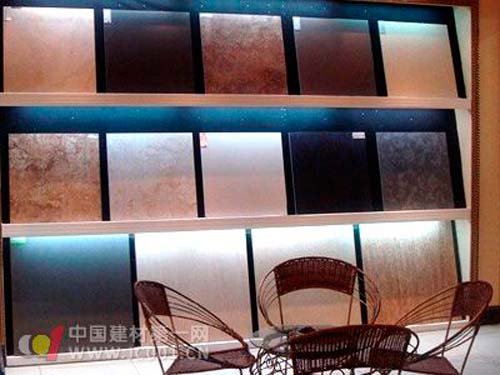 The European Union imposed a temporary anti-dumping duty on Chinese tiles for a period of six months starting from March 2011. After further investigation, on September 15th, the EU made an anti-dumping final ruling on ceramic tiles originating in China. The implementation date was September 15, 2011. From midnight hours to 4:00 pm on September 14, 2016, the punitive tariff is as high as 69.7%. "After being levied high anti-dumping tariffs, China's ceramics will lose competitiveness in the EU market, ceramic exports will also drop sharply, and eventually even have to withdraw from this market." Industry sources said.
The European Union imposed a temporary anti-dumping duty on Chinese tiles for a period of six months starting from March 2011. After further investigation, on September 15th, the EU made an anti-dumping final ruling on ceramic tiles originating in China. The implementation date was September 15, 2011. From midnight hours to 4:00 pm on September 14, 2016, the punitive tariff is as high as 69.7%. "After being levied high anti-dumping tariffs, China's ceramics will lose competitiveness in the EU market, ceramic exports will also drop sharply, and eventually even have to withdraw from this market." Industry sources said.
The company has now high inventory. "In this anti-dumping case, the EU counts the number of ceramics directly arriving at the EU from China's ports, and also includes the 'Made in China' exports from third countries to the European Union. There was some discrepancy between the EU and the final data, which eventually led to the final ruling.†According to an industry veteran, “In fact, as early as the beginning of March, 80% of the buyers in the European Union began to wait and see. ."
This result led to a sharp increase in domestic ceramics companies in Guangdong and Foshan, for example, in the EU ceramic tile anti-dumping companies involved in the country's most numerous production areas, statistics show that there are thousands of companies affected by tariffs. At present, more than half of the ceramic enterprises in Foshan are facing a situation of oversupply and a serious backlog of products. Some smaller companies have been forced to close down or change jobs.
“Increase in stocks is indeed quite serious. According to the understanding of the association, if there are some supporting companies, there are currently more than 50% of ceramics enterprises in Foshan whose inventory exceeds a reasonable level.†said Mr. Lan Weibing, director of the Foshan Ceramics Office of the China Ceramic Industry Association. "This range varies from company to company. At present, many companies' inventory exceeds a reasonable range of 20% to 30%."
New applicants are less likely to apply for low tax rates. According to the relevant regulations, the EU may, depending on the circumstances, propose an extension after the expiration of the anti-dumping period. One year after the final ruling, China's newly-exported tile companies and EU tile importers can apply for a review in the name of a new importer, seeking a lower tax rate, but according to past experience, the possibility of obtaining lower tax rates is very low.
The reporter noted that according to the EU's list of tariffs, Dongguan Dongguan Meimei Ceramics Co., Ltd., Guangdong Jiamei Tile Manufacturing Co., Ltd., Guangdong Qingyuan Jianyi Ceramics Co., Ltd., Guangdong Foshan Jianyi Ceramics Co., Ltd. was found to have a tariff of 26.3%; Guangdong New Runcheng Ceramics Co., Ltd. was 29.3%; Shandong Yadi Ceramics Co., Ltd. was 36.5%; and more than 30 actively responding Foshan ceramics companies obtained a 30.6% tax rate. Nearly 70% of other ceramics and related trading companies will be imposed a 69.7% punitive tariff, of which small and medium-sized ceramic companies are the most affected.
"This tariff will enable the EU to close one third of Foshan's ceramic enterprises," said Mr. Blue Guard.
Start "position transfer"
At present, many ceramic companies have begun to consider the relocation of production bases to lower-cost countries or to domestic sales, "curve save the country" to avoid the EU's high tariff threshold.
Chen Yanbin, Chairman of Ashgaf Ceramics, a Chinese-French-Korean cooperative company, recently stated that the EU's anti-dumping final ruling on Chinese tiles is undoubtedly a manifestation of the protectionism of regional economic groups. Chen Yanbin revealed that at present it is in contact with the European Union's general distributors, hoping that the production base will soon be home to the EU or South Korea, thus avoiding the high punitive tariffs on anti-dumping.
The ceramic industry's transition to domestic sales is also becoming a trend. The survey shows that since last year, China’s ceramics have been subjected to anti-dumping lawsuits from the EU, South Korea, Argentina, Peru, and other countries and regions, and ceramics companies in several major ceramic producing areas, including Foshan ceramics, have been increasingly turning to domestic sales. .
"Internal sales do not only see the city, but also the consumption power of the vast rural market is also strengthening. If the domestic ceramic industry can see this, putting down the figure can also help overcome this difficulty." .
The Blue Guards said that companies should pay more attention to "Intrinsic strength" and change the previous model of purely pursuing quantity and small profits while paying more attention to improving the quality of products and building brands. In addition, industry associations have taken some measures to help companies deal with the current difficulties as much as possible. For instance, assisting some enterprises to go out more and achieve mutual benefits will help change the current situation in which Chinese ceramics, especially Foshan ceramics, are subject to anti-dumping lawsuits in many countries.
It is reported that at present, the Foshan Office of the China Ceramic Industry Association has formed an emergency working group to conduct statistics and evaluation on the impact of the EU anti-dumping final ruling on local ceramic companies.
Ceramic companies "curve save the country" to avoid the EU high tariff threshold